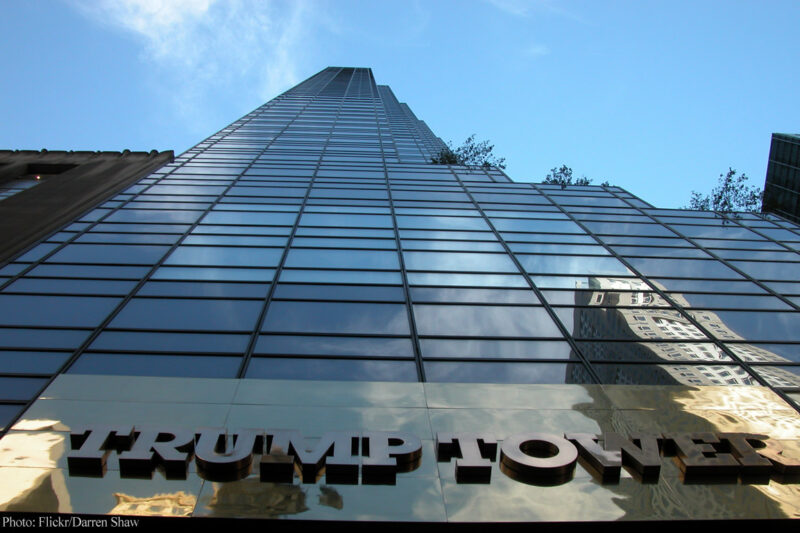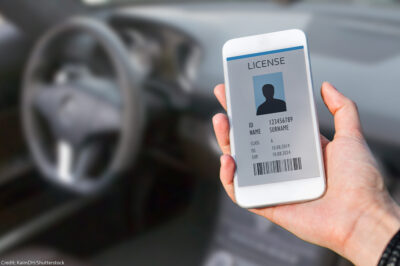
In late November, as the country absorbed the election results, a group of techies met in the San Francisco offices of the payment start-up Stripe. They were there to discuss their role in resisting the assault on civil liberties that the president-elect had promised to unleash, with a specific focus on using their technical abilities to protect vulnerable populations.
Trump had made clear he intended to use the awesome capacities of modern-day technology to target groups he deems undesirable. On the campaign trail, he vowed to create a database to monitor Muslims in the country. Since taking office, he has ordered his administration to vastly expand surveillance at the border to ensnare immigrants. Invasive, warrantless cell phone searches at the border have skyrocketed.
As representatives of some of the most powerful companies in Silicon Valley, whose profits depend on the collection of data about ordinary consumers, the technologists who gathered at Stripe’s headquarters were painfully aware of the ways their livelihoods could contribute to Trump’s plans. They wanted no part of it.
Leigh Honeywell, who at the time worked as a security manager at Slack, left the meeting pondering the best way for tech workers to influence the policies of their own companies. Thus was born the “Never Again” pledge. In consultation with civil society groups, Honeywell and a number of co-organizers drafted a pledge not to contribute in any way to efforts by the administration to create a Muslim registry or to deport immigrants. On the day it was released, it had roughly 60 signatures. By the time it closed to signatures it had nearly 3,000.
“We refuse to build a database of people based on their Constitutionally-protected religious beliefs. We refuse to facilitate mass deportations of people the government believes to be undesirable,” the pledge reads, pointing to the Holocaust, the Rwandan genocide, and the internment of Japanese Americans as precedents for what can happen as a result of policies like Trump’s. The pledge also commits its signatories to work within their companies to minimize practices that facilitate ethnic and religious targeting, promote the implementation of end-to-end encryption, and raise awareness of the dangers associated with the collection and retention of sensitive data.
The timing of the pledge underscored a significant chasm within Silicon Valley. The day after its launch, executives from 10 major companies — including Google, Amazon, Apple, and Facebook — attended a summit at Trump Tower intended to explore how they might work with the incoming administration. “We wanted to change the conversation around this meeting,” Honeywell explains. “All these tech leaders were awkwardly capitulating to Trump, but tech workers were having none of it.” (Honeywell has since left Slack to join the ACLU as a staff technologist.)
The activism proved effective. With public pressure mounting on tech CEOs to take a stand, it was only a matter of days before Apple, Google, and Uber all said they would refuse to contribute to the construction of a Muslim registry.
Of course, concerns about the oppressive capabilities of technology didn’t start with Trump. Particularly since Edward Snowden’s disclosures first began in 2013, the precariousness of our privacy has come into clear focus, with the public’s misgivings steadily growing — both about the government’s enormous surveillance powers and the exploitation of personal data for corporate profit. But with Trump’s election, those concerns have swelled. Thanks in no small part to efforts like the “Never Again” pledge, we’ve seen a new willingness on the part of the tech community to examine the ethical implications of its work and consider efforts to restrain it.
This has resulted in various efforts to organize tech workers and consolidate their influence. The meeting that spawned the Never Again pledge was the inaugural convening of Tech Solidarity, an initiative that organizes meetups across the country of techies interested in countering Trump’s agenda and supporting organizations that could benefit from their skills. “So far, we have been totally silent and acquiescent,” Tech Solidarity founder Maciej Ceglowski told Quartz. “We want people to be afraid of the political power of their employees.” On the heels of a successful organizing campaign of Silicon Valley security guards, engineers are now considering formally unionizing.
Company executives are paying attention. A few days after employees at Google and Comcast staged walkouts over Trump’s proposal to ban immigration from a number of predominantly Muslim countries, nearly 100 companies — including Facebook, Microsoft, Netflix, and Twitter — signed on to challenge the ban in court. Airbnb went a step further, offering free housing to refugees and other travelers barred from entering the United States while the travel ban was still in effect. Around the same time, Uber CEO Travis Kalanick stepped down from Trump’s advisory board amidst internal and consumer protests against his participation.
Technologists are joining the fight for justice in other venues, too. This year’s Internet Freedom Festival, an annual gathering of tech activists in Spain, was the largest yet. It included the participation of companies like Twitter and Facebook, and hosted discussions about using tech to deter police violence, support women’s rights, and empower immigrant communities. A March session of the Internet Engineering Task Force, a body that documents technical standards for the internet, held a plenary discussion on the human rights implications of internet protocols — the rules that make up the infrastructure of the internet and govern, for example, the security of your web-browsing habits.
Technologists aren’t just playing defense — the last few months have also seen a marked increase in the development of technology in the service of activism. Initiatives like the Town Hall Project and 5 Calls make it easier for people to engage with their congressional representatives. Apps are being developed to warn people about immigration raids, track Trump’s impact on human rights, and boycott Trump-affiliated businesses. These kids of apps aren’t new, and not all of them will stick, but there is no doubt that the political winds are having a creative impact.
Meanwhile, the use of encrypted communications by the general public is surging out of fear of politically motivated surveillance — including among federal employees. Signal, the most secure of messaging apps, reported that its downloads in the first quarter of 2017 were nearly double those of the same period last year. A deluge of content — including from mainstream outlets like the New York Times and Teen Vogue — is educating concerned readers on how to up their security practices. (You can read tips from the ACLU here and here.)
To be clear, the dangers posed by technology have by no means been neutralized. But it’s heartening that important elements of the tech community are starting to openly reckon with the inherent dangers of the infrastructure that they have built. “Tech plays such an ever-present role in people’s lives,” says Honeywell. “Now that tech workers are more aware of their power as employees, I think we’re going to see a lot more activism.”
This post has been corrected to reflect the fact that 2017 was not the first year Twitter and Facebook attended the IFF.



